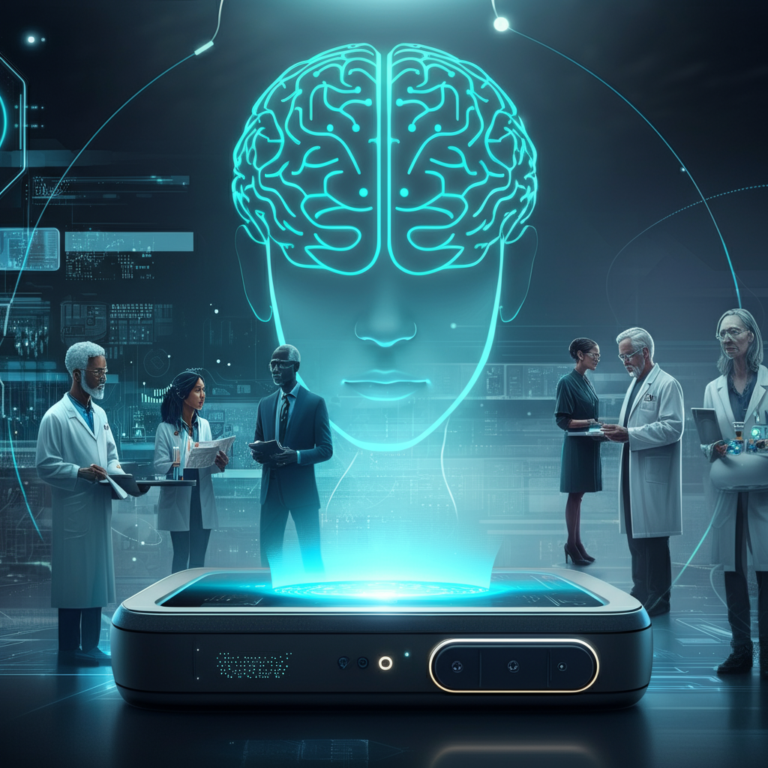Imagine a device capable of unlocking the deepest corners of the human mind with just a flick of a switch. Mind-reading technology, long confined to the realms of science fiction, has always sparked fascination and fear in equal measure. What if we could crack the code of our innermost thoughts? What would that mean for our world, our ethics, and our identities?
This post explores the theoretical foundation of mind-reading technology, its ethical dilemmas, potential applications, and its profound impact on society. We’ll also take a glimpse into how this futuristic concept could unfold and reshape our world.
Cracking the Code of the Human Mind
Theoretical Approach to a Mind-Reading Device
Mind-reading devices would rely on groundbreaking technology rooted in neuroscience, artificial intelligence, and data processing. Today, researchers are already building the foundation for such tools through advancements in brain-computer interfaces (BCIs) and brain-imaging technologies like fMRI and EEG.
For instance, BCIs have shown promise in decoding neural activity and converting it into digital signals. Imagine a device capable of reading and interpreting these signals in real-time, translating complex patterns of firing neurons into text, images, or even emotions. AI would be key to this process, as its ability to analyze and predict patterns in massive datasets would be necessary to understand the intricacies of human thought.
However, even with modern technology, the complexity of the human brain creates formidable challenges. Thoughts are not stored as neatly packaged text files but are a mix of memories, emotions, and context-sensitive information. Any device would require an unprecedented level of precision and nuance to decode this complexity—and this demands major advancements in both technology and our understanding of consciousness itself.
Ethical Considerations in a Mind-Reading Revolution
Privacy and Consent
One of the thorniest issues that would arise with mind-reading technology is the invasion of privacy. Unlike written or spoken words, thoughts are involuntary. They are often fleeting and unfiltered, containing raw ideas we might not be ready—or willing—to share. Would consent hold the same meaning if thoughts could be extracted effortlessly?
Without strong safeguards, such a device could strip away one of humanity’s most fundamental freedoms—the ability to think freely without the fear of surveillance. How would we ensure that nobody’s thoughts are read without explicit permission? Regulations would need to evolve to ensure ethical deployment and use of such technology.
Risk of Misuse
Beyond privacy violations, misuse of mind-reading technology looms large. From governments to corporations, there could be entities seeking to exploit unspoken ideas for manipulation, control, or profit. Could thoughts be used as evidence in courtrooms? Would marketers tap into subconscious desires to make campaigns even more intrusive than targeted ads already are? These risks are sobering reminders of the power—and pitfalls—that come with mind-reading capabilities.
Real-World Applications of a Mind-Reading Device
While the ethical challenges are significant, it’s also essential to consider the enormous potential benefits mind-reading technology could unlock.
1. Healthcare
The device could revolutionize mental health treatment, offering unprecedented insights into conditions such as depression, anxiety, PTSD, and autism. Therapists and doctors could better understand the experiences of their patients, helping to tailor diagnoses and treatments to individual needs. Similarly, patients unable to communicate verbally—like those in comas or with paralysis—could engage with the world in ways previously thought impossible.
2. Law Enforcement
Mind-reading tools might become integral in the justice system. Imagine an interrogation without words, shortcuts to uncovering the truth, and solidifying evidence. However, this could also raise issues of ethics and consent. Does the “right to remain silent” extend to thoughts?
3. Human Relationships
A device that reads minds could dramatically alter the way we connect with one another. Miscommunication—one of the primary reasons for conflict—might become a thing of the past. Mind-reading could deepen empathy and understanding within personal relationships. But on the flip side, the loss of secrecy might erode boundaries and create societal friction.
4. Education and Productivity
From predicting students’ learning needs to streamlining workplace collaboration, the technology could improve efficiency across various domains. Schools and organizations could tap into real-time brain activity to design personalized experiences that resonate with each individual.
Mind-Reading Technology and Its Wider Societal Impacts
What could humanity look like in a world with mind-reading devices?
Redefining Communication and Behavior
If thoughts were no longer private, human communication would shift profoundly. People may become more guarded about their inner thoughts, leading to a new kind of “performance” even inside their minds. Alternatively, transparency might become the norm, with social constructs evolving to accommodate the changes.
Blurring Boundaries of Identity
Our thoughts are an integral part of our identities. If mind-reading devices could capture them, individuals might find themselves grappling with their sense of self. The commodification of thoughts could create a hyper-monitored society where distinctions between the public and private spheres collapse altogether.
What’s Next for Mind-Reading Technology?
While a true mind-reading device remains speculative, the trajectory of technological progress suggests it may not be as far off as we imagine.
Advancements in AI, neuroscience, and machine learning will continue to push the boundaries of what we can achieve. If navigated responsibly, this technology could address profound problems and offer humanity new tools for growth and understanding. But for that to happen, stakeholders—scientists, governments, ethicists, and society—must work collectively to create frameworks that prioritize ethical development and use.
Could You Imagine a World Where Thoughts Are Not Private?
The invention of a mind-reading device would undoubtedly spark a revolution—one filled with innovation, opportunities, and challenges. The concept presents humanity with a dual-edged sword, and our choices will determine how it shapes the world.
What are your thoughts on this intriguing possibility? Would you hand over your thoughts to a machine, or does the very idea make you uneasy? Share your perspective in the comments below. After all, the future of such technology begins with the conversations we’re having today.







